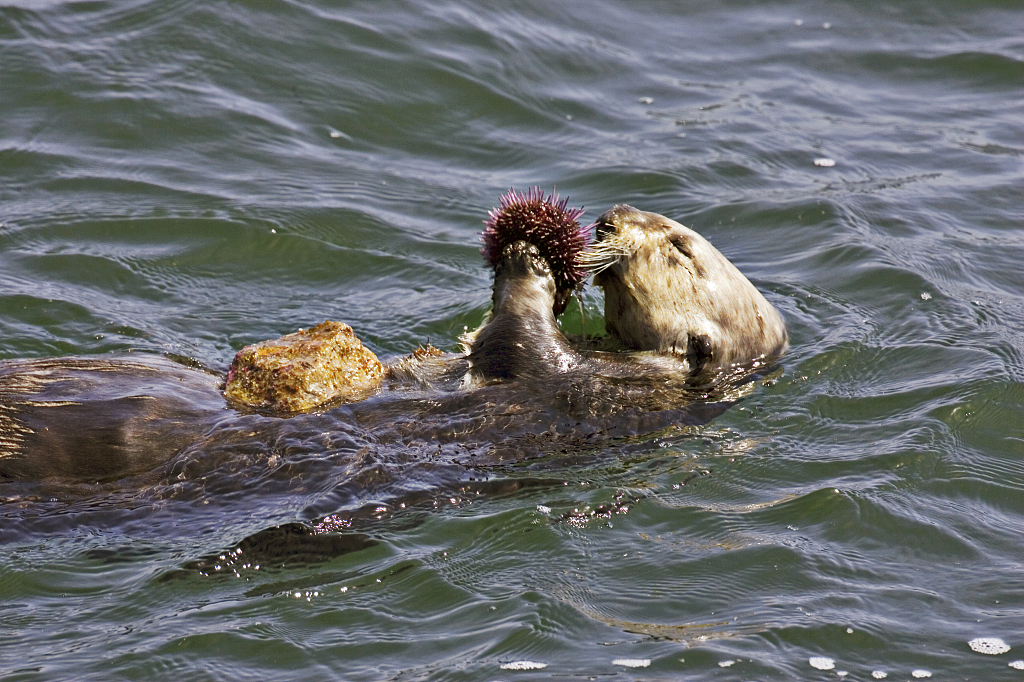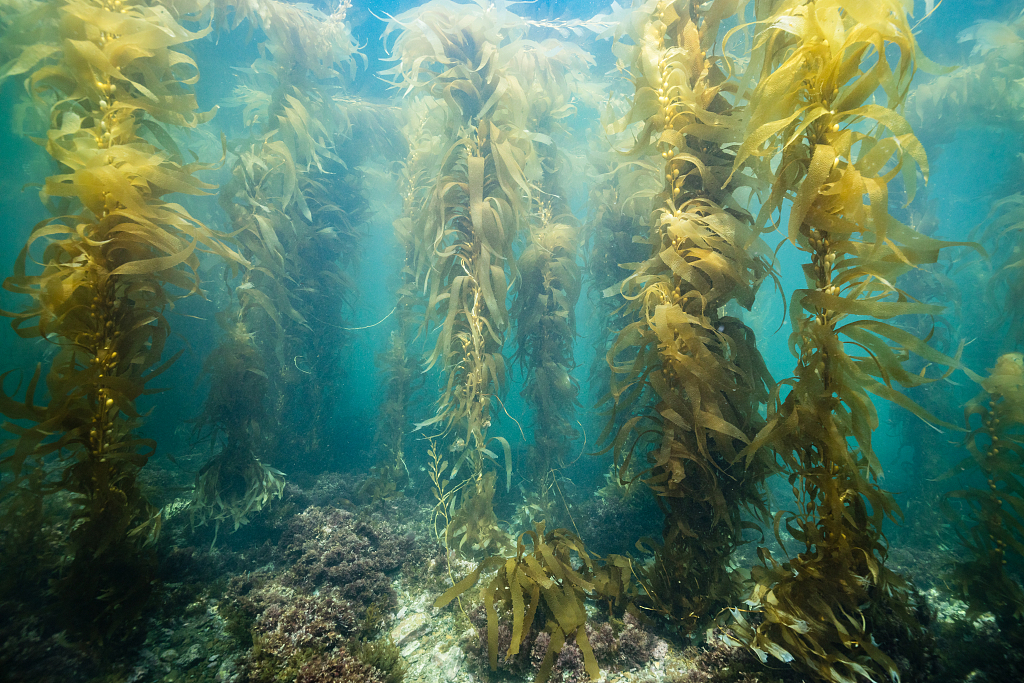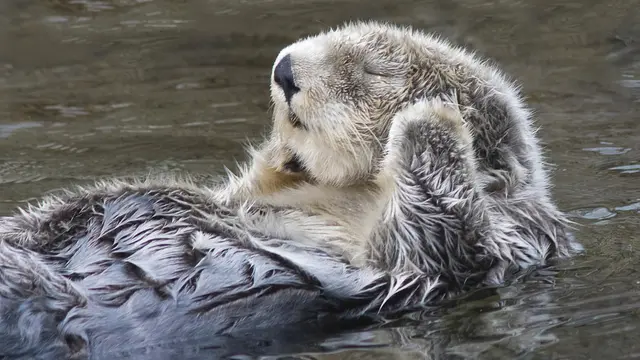Shellfish-munching sea otters have been the bane of fishermen's existence ever since they were reintroduced to Canada's west coast in the 1970s, but a new study indicates they bring more economic benefits than losses.
The research was led by teams from the University of British Columbia and Vancouver Island University and published in the journal Science on Thursday.
The study offers an example of what might happen if other endangered species, from apex predators like wolves and sharks to herbivorous bison which were once plentiful in the great plains, are brought back to their original habitats.
Toward the end of the 19th century, otters in the northwest Pacific were hunted almost to the point of extinction due to a demand for their thick, luxurious fur.
Otters prey mainly on invertebrates such as crabs, clams, and urchins. With the otters gone the shellfish fishing industry exploded.
The Canadian government however decided to reintroduce otters in the 1970s, without consulting the local population, including the native First Nations.

A sea otter is eating food. /VCG
The otters began devouring the main source of fishermen's livelihoods, in what initially seemed to be a textbook example of ecological-economic conflict.
But it's not so straightforward, said the new paper's authors. The return of the otters also led to indirect effects on the ecosystem known as "trophic cascade."
Otters eat sea urchins, which had devoured kelp on the ocean floor. The size of these algal forests have now multiplied by a factor of twenty, said the researchers.
And kelp provide protective habitats for a number of fish species like herring, which, in turn, benefits the fishermen.
Not only that, kelp also sequesters carbon dioxide, reducing ocean acidification and the amount of the greenhouse gas in the atmosphere.
The biggest direct financial benefit has come through tourism. The study authors estimate the dollar profit from having the sea otters is seven times greater than the losses to the shellfish industry.
"When you restore a predator, it usually is controversial. And this arises largely because predators end up competing with people for resources," said Jane Watson, a professor at Vancouver Island University.
But the return of kelp forest "increases near-shore productivity" and "creates habitat for kelp dependent species," she said.

The kelp forest. /VCG
"Countless ecosystems around the world are a shadow of their former glory, held back by missing key ecological players just as the sea otters were missing from this coast for decades," added Kai Chan, the paper's senior author, from the University of British Columbia.
"Thus we are seeing elsewhere how reintroducing wolves can trigger ripples of benefits for a large number of species and also for humans across the US and even in Europe," he added.
How might bringing wolves back help humans? Their extermination from the midwestern and eastern United States benefited coyotes, which in turn led to a reduction in the population of foxes.
Foxes prey on small mammals, whose population has exploded as a result, leading to a surge in ticks, and of Lyme disease.
The new paper underscores the need to analyze ecosystems in their totality, rather than looking solely at what reintroducing predators will mean in terms of livestock losses.
(Cover image via VCG)
(If you want to contribute and have specific expertise, please contact us at [email protected].)
Source(s): AFP
 简体中文
简体中文

